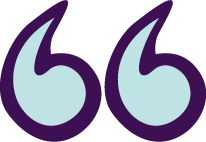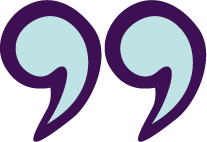In Year 11 and Year 12 there are many options to support your child’s needs. Explore with your young person what will suit them best.
Victorian Certificate of Education (VCE)
VCE is usually done over two years in Year 11 and Year 12. It is designed to prepare students for further study, employment, and life after school.
Students can choose academic and vocational subjects. They study a combination of compulsory and elective (chosen) subjects for VCE.
VCE assessment combines school-assessed coursework (SACs) and external examinations. These assessments go towards a student’s final study score for each subject. The results are used to calculate the Australian Tertiary Admission Rank (ATAR). This is a ranking system for university entrance in Australia.
VCE provides a pathway to options such as university, vocational education, an apprenticeship or traineeship, or direct work.
VCE (scored)
This gives an ATAR which ranks students’ results from zero to 99.95 compared to their peers. Universities and other tertiary institutions use the ATAR to select students for entry into their courses. Different courses and institutions have different ATAR requirements. Getting the required ATAR does not guarantee admission but improves your chance of receiving an offer.
Assessment includes mid-year and end-of-year exams and SACs during the year.
VCE (unscored)
This is where students study VCE subjects but do not receive a numerical score or ATAR at the end of their studies.
Students still take VCE classes and complete coursework like regular VCE students. They join in classroom activities and assessments during the year. But they do not sit the mid-year or final exams that go towards a study score or ATAR.
Instead of a numerical score, students receive “S” (satisfactory) or “N” (not satisfactory) results for each subject based on their overall performance.
Changing from a scored to an unscored VCE is possible during Year 11 or Year 12, especially for students affected by illness or mental health concerns.
VCE Vocational Major (VCE VM)
This is a two-year program within the VCE that focuses on vocational and applied learning.
Students study four core subjects: literacy, numeracy, work readiness, and personal development.
Students also choose a Vocational Education and Training (VET) subject. VET subjects give practical learning in specific industries or career areas and help students to gain practical skills and experience.
Students complete a set number of work placement hours. Work placement gives real experience in a workplace and helps students understand and use what they have learned in their studies.
VCE VM can lead to Technical and Further Education (TAFE), apprenticeships, traineeships, or direct work.
Victorian Pathways Certificate (VPC)
This is designed for students with additional needs or disability.
The VPC is usually completed during Year 11 and Year 12, but it is flexible, and students can start in Year 10.
The VPC offers the same subjects as the VCE VM, but at an easier level: literacy, numeracy, work-readiness, and personal development. Students complete a work placement, and they can also add a VET subject if they wish.
Because VPC has the same subjects as VCE VM, students are usually in the same class.
All Victorian Government mainstream schools should offer the VPC. Some specialist schools offer VPC. It is worth checking with your child’s school.
The VPC is a good pathway to entry-level TAFE, VET (Vocational Education and Training) or work.
Vocational Education and Training (VET)
This involves practical learning in various industries and professions. The program includes structured work placement and work experience opportunities.
Not all vocational training courses are available to students in secondary school. Check the Victorian Government website.
VET courses that are available in secondary school are often called VETDSS or VET VCE. Training can be either at your child’s school, another school, or at a separate registered training organisation (RTO).
You can ask your school what courses they offer and what courses they hold at the school.
Not all schools offer every course. Your child can do courses not offered by their school, but you will be responsible for enrolment and connecting the training organisation to your school. Local Learning and Employment Networks (LLENs) may also help you find a course.
Structured Workplace Learning (SWL)
This is a planned and supervised learning experience for students. It is usually done as part of VET programs or school-based apprenticeships and traineeships. Students spend time in a workplace to gain practical experience and skills related to their chosen industry or career pathway.
General Achievement Test (GAT)
This is an important exam for VCE and VCE Vocational Major students. Special exam arrangements can be provided for students with disability, including extra time, assistive technology, separate examination rooms, interpreters, and alternative exam formats.
VCE Special Provisions
Special provisions are changes to classroom learning and school-based assignments that support students with individual learning needs or disability. They may include:
- Adjustments to classroom activities and assessments
- Assistive technology
- Using scores from assessments or work already completed by the student
- Extra time to complete assessments
- Substitute tasks of the same type
Special examination arrangements
The Victorian Curriculum and Assessment Authority (VCAA) must give approval for special examination arrangements. Schools need to apply for approval by the end of Term 1. The school must give evidence of any special provisions that were given to the student for previous exams or class assessments. Evidence from your child’s doctors or therapists may also be required.
Special examination arrangements can include:
- Rest breaks
- Extra working time
- Separate rooms for individual students
- Use of computers, tablets and/or assistive technology
- Readers
- Scribes
- Clarifiers
- Auslan interpreters
- Alternative format examination papers
- Alternative examination venues
Work experience
Work experience is an important part of your child’s school experience. They work with a business or service for a short time as part of a formal school program. It usually happens midway through Year 9 or Year 10. It’s important to find a placement that best suits your child. While schools can help, parents usually find work experience placements for their child.
- Start talking to your child about where they would like to apply for work experience
- Work with the year-level coordinator or careers counsellor to find out if they have any contacts in your child’s interest area
- Use your own work contacts to find a suitable workplace for your child
Often work experience is done as a one-week block. You can ask for reasonable adjustments that will help your child, such as shorter days or a half day each week for a few weeks.
If your child has individual funding at school, then an Education Support Officer can help your child at work experience if needed.
At your child’s Student Support Group meeting, you can discuss things such as using an Education Support Officer, what adjustments may need to be made, and how the school can support your child to have a positive work experience.
Post-secondary study
Students with disability can receive support at TAFE and university. There is a helpful guide available on support.
Useful links
Many Talents One VCE
VCAA Special Provision
Special provision for classroom learning and school-based assessment






